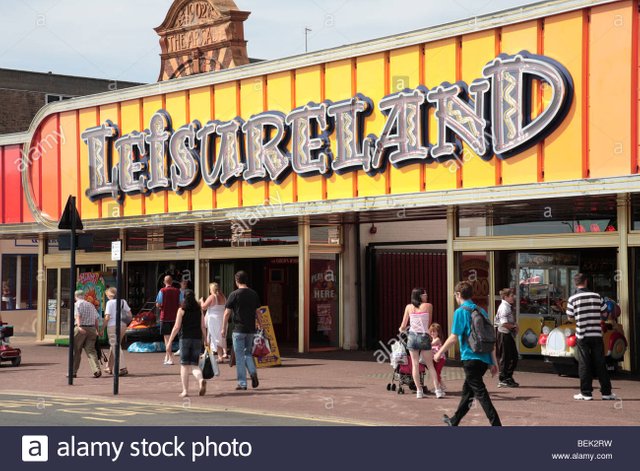The Fall of the Amusement Arcades

Leisureland amusement arcade, Great Yarmouth, England.
Imagine: the majestic sight of the UK’s sandy strips up and down its coasts where millions of holiday makers flock to the shores to bathe in the sun and delight in the amusement of the arcades across the roads. This is the 1990s – or it could be the mid naughties, the same applies throughout. Simpler times in comparison to our digital age. The holidayers-of-old had mobile phones but were a long shot from being as “smart” as they are now. Maybe they sent a text message or two back home from time to time to check that the family cat and dog are all okay with the neighbours, otherwise, the family would spend each joyful moment with one another for the whole week.
Until the parents wanted some “alone time” and the kids wanted to play the games. So with the spark of energy, the kids dashed away. Their hands would be full of 1p, 2p, 10p and 50p coins while Mum and Dad stayed behind to enjoy the more finer elements of holidaying – alone.
The kids, together, hurriedly made their way to the arcades. The buildings up and down the beaches, their lights and logos dancing wildly in the night air. The Majestic Flamingo, however, was the one that took their interest more than most others. But not because of the coin machines where the children could try their luck at winning even more money; they wanted to play what we would now consider ancient games.
The wealth of games the Majestic Flamingo boasted were in no part due vain. Bandai Namco’s 1995 smash hit, Ridge Racer, complete with custom made car seat, driving wheel, gear sticks and pads controller set sat in one corner. Adjacent to which our young holiday maker could find Capcom’s 1991 favourite, Street Fighter; over yonder, some carnation of Time Crisis and The House of the Dead from 2005.
This was the time when arcade games were enjoyed by the billions all over the world. The hardware incorporated into these media devices were ahead of what was readily available at home so a holiday was the perfect time to have a catch up and play your old favourites in ways other than the standard console controller.
But then the industry took an immense downfall. What was once a buzzing, thriving industry that had found a niche market that it thoroughly exploited, suddenly, nobody paid attention to these outlets of amusement. Their worth just wasn’t up to scratch. The PS2 came out. Then the PC caught up, then Microsoft came up with their own console, the Xbox, shortly after. So the hardware was being rapidly succeeded. And that’s the problem we are seeing now, all over the world.
When we look at any of the UK’s proud coasts, we see hundreds of these amusement arcades almost empty. The town may be going through some sort of modernisation; new roads with new looks in the hope of bringing new business to the areas yet nothing ever works and the local councils sit around their desks mulling over what could have been, not where it went wrong. Not a single one of these men and women, I suspect, have quite thought through exactly why their multi-million-pound modernisation worked.
The amusement arcades have always been the meat in the sandwich; not the beaches themselves. We forget that because we’re British. We think, “It’ll do,” because we’re old fashioned like that. And mostly, we tend not to care unless it’s something dire. Now, however, it seems that the industry is facing something somewhat dire.
We cannot now go to the seaside and eat a sugary doughnut now without seeing the faint, yet hidden, look of displeasure on our partners’ faces. We know that ten-to-twenty years ago the area would have been plastered in a thick odour of sun cream and so much white skin our eyes burned. But that’s no longer the case because the technology is frankly so old.
For instance, Ridge Racer is now twenty-two years old. The House of the Dead is eleven. There have been at least two new generations of gaming consoles since their incision and they are still being used. There’s no longer immersion because the kids of the holidays are used to better back at home.
And that, I need not remind you, reader, is where most of the money for these coin-operated machines came from: the kids.
So the sun-stricken beaches of our coasts will remain emptied until such a time that we begin to value the need for technology in more areas than our own homes. It’s time we took to adapting what we know and apply these ideas to the amusement arcade industry. Because, before long, places like the Majestic Flamingo will all but close down, and its pink lights will never brighten the night sky again.
Originally written for my website: V1O.